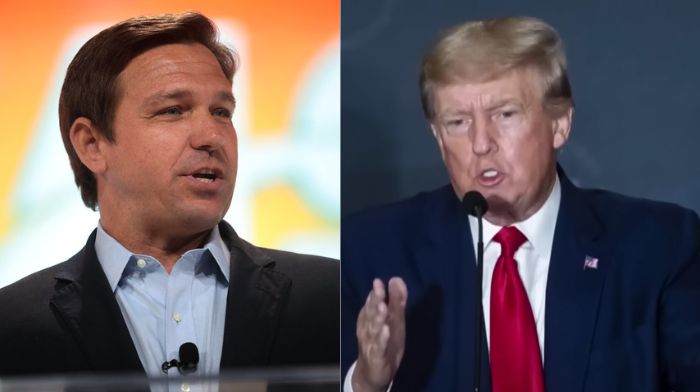Joe Biden’s 2020 presidential campaign had “surreptitious involvement” in organizing a letter written by 51 former intelligence officials that falsely claimed the New York Post’s story about Hunter Biden’s laptop was Russian disinformation, according to a complaint filed with the Federal Election Commission on Wednesday.
The complaint, from lawyers for former President Donald Trump, asks the FEC to record the infamous “Dirty 51” letter as an “in-kind contribution” to Biden’s campaign because it allegedly was used to influence the outcome of the election.
The Oct. 19, 2020, letter was signed by 51 ex-spooks, including five former or acting CIA directors — John Brennan, Leon Panetta, Mike Hayden, John McLoughlin and Mike Morell — as well as James Clapper, the one-time director of national intelligence.
It was delivered to Politico five days after The Post ran its exposé, and three days before the final presidential debate of the election campaign, where Biden cited the letter to discredit evidence from the laptop showing he met his son’s overseas business partners while he was vice president.
“The speed with which this letter was written, and the number of Individual Respondents involved, points directly to the surreptitious involvement of the Biden Campaign in soliciting or organizing the drafters of the letter in a clear violation of [the Federal Election Campaign Act],” claims the FEC complaint to be filed this week by attorney Timothy Parlatore.


“The letter assessed that the Hunter Biden emails referenced by the New York Post were fake.
“As a result, in addition to the suppression of the story undertaken by Facebook and Twitter, news and social media outlets began referring to the emails as a Russian ploy to influence the election.”
Each of the 51 ex-intelligence operatives named in the complaint “made contributions of an item of value — namely the publicly issued letter signed in their names and calling upon the collective weight and experience of their federal employment — in contravention of the limitations placed upon federal contractors,” says the complaint.


“These contributions, valued well in excess of $200 in that they had a substantial influence on the outcome of the Presidential election, went unreported by Biden for President.”
The letter contained “numerous irresponsible and intentionally inflammatory statements,” the complaint alleges, even though none of the signatories had reviewed any material from the laptop.
“These statements included claims that the emails had ‘all the classic earmarks of a Russian information operation’ … although they did not know if the emails were genuine or not, nor did they have evidence of Russian involvement…
“In their haste to assist the Biden campaign by discrediting the laptop and its contents, the Individual Respondents emphasized their experience, high rank within the Intelligence Community, and long access to classified information about Russia, using it to lend weight and credibility to their statements, but took no time to actually analyze the recovered emails which were later determined to be genuine, nor did they inquire into the then current status of the FBI Investigation that had been ongoing for several months,” the complaint alleges.
The complaint is the second stage of a multi-pronged strategy by Trump and his attorney to bring the “Dirty 51” to account, with the goal of uncovering alleged communications with the Biden campaign.
Last May, Parlatore filed five complaints with the agencies where the 51 once worked, including the CIA, the National Security Agency, the Director of National Intelligence, and the Department of Defense.

The complaints urged that the former officials be stripped of their security clearances if they had violated their obligations to submit the letter to their former employers for pre-publication review. None of the agencies have responded.
The FEC complaint now repeats those allegations, saying that each of the 51 signatories “violated their life-long Federal contracts by drafting or signing the letter and publishing it without submitting it for pre-publication review by their respective agencies. The severity of this breach is exacerbated by the fact that the letter strongly, but falsely, implies that the analysis is based on their collective access to classified materials.”
House Judiciary Committee Chairman Jim Jordan (R-Ohio) also last month began sending letters to the 51 signatories, demanding they hand over documents and present themselves for transcribed interviews.

Some signatories have begun to back away from claims in the letter.
Douglas Wise, former deputy director of the CIA, has admitted that he and others among the “Dirty 51” knew at the time they signed the letter that the emails on the laptop “had to be real.”
Clapper has blamed the media, which he said “deliberately distorted” the letter.

But the FEC complaint points out that “none of these efforts to soften the impact of the letter were undertaken at the time, when the participants gleefully allowed the media and the Biden campaign to use their valued, if unauthorized, intelligence analysis to influence the election.”
Clapper appeared on CNN the day the letter was published and said that the laptop and emails were “classic textbook Russian tradecraft at work.”














